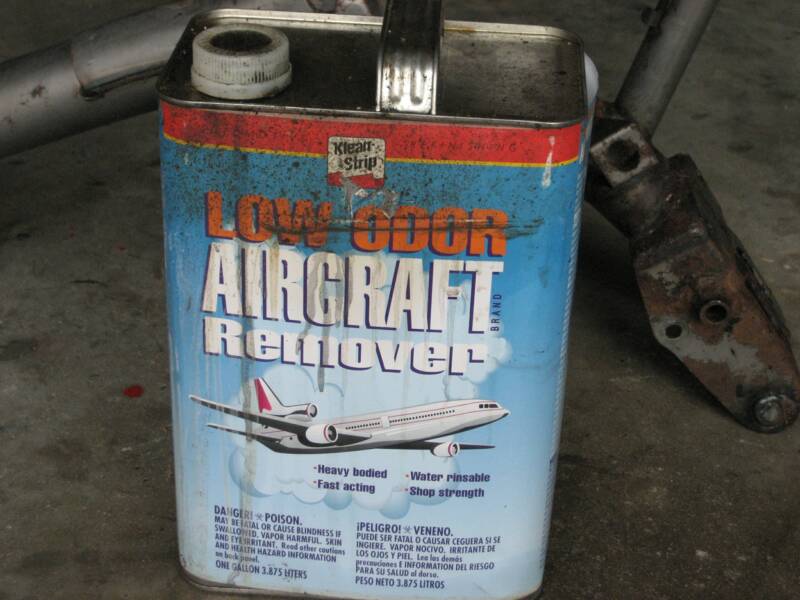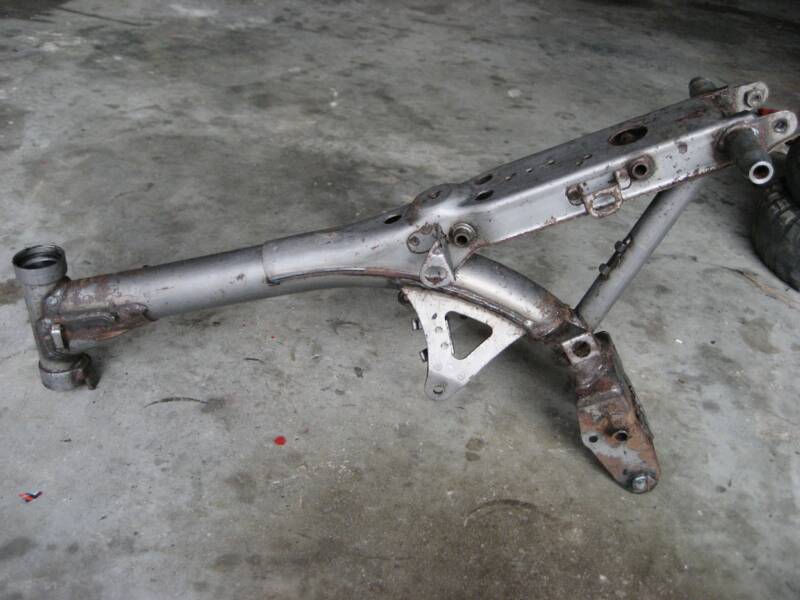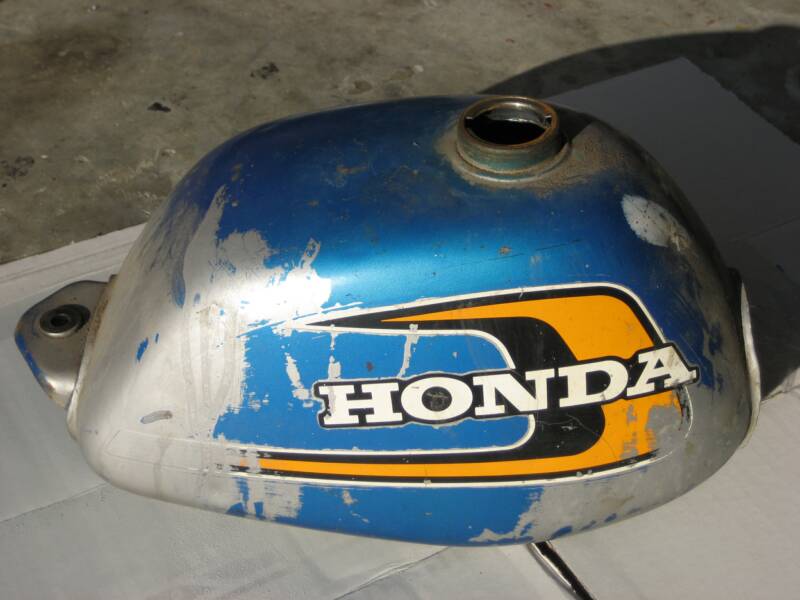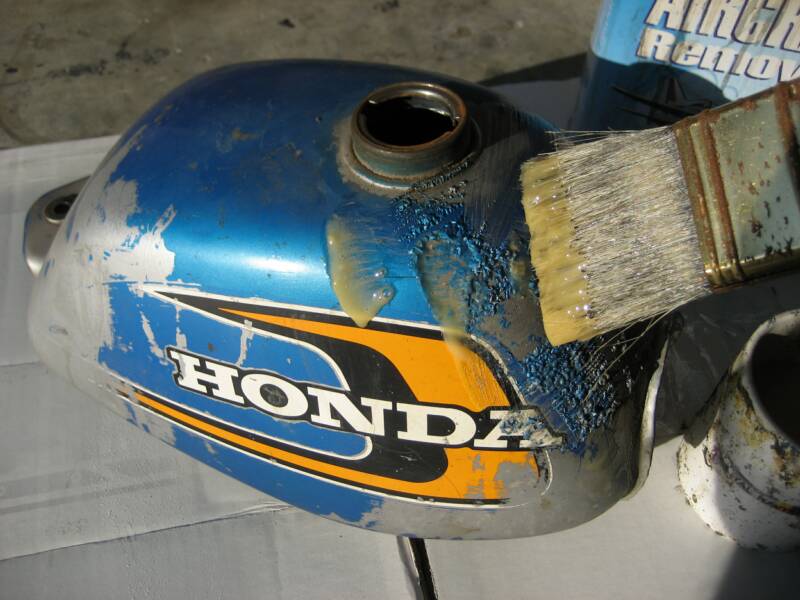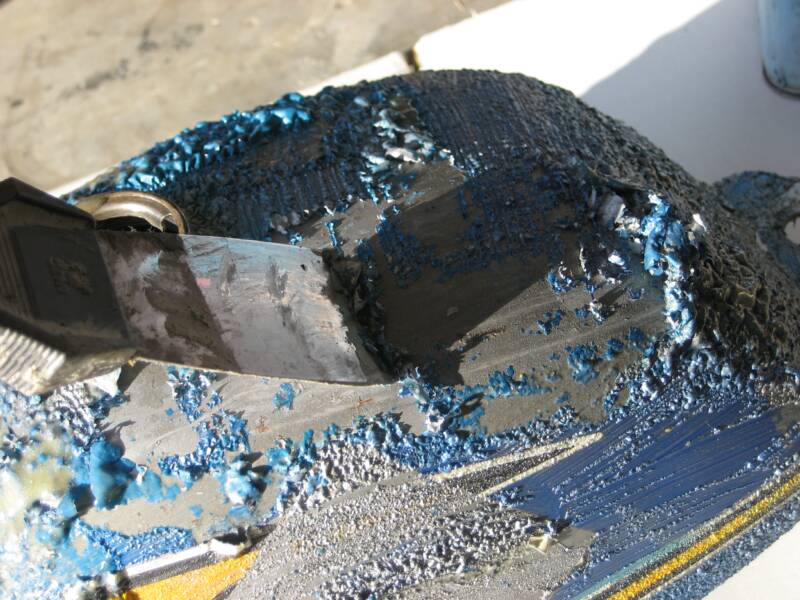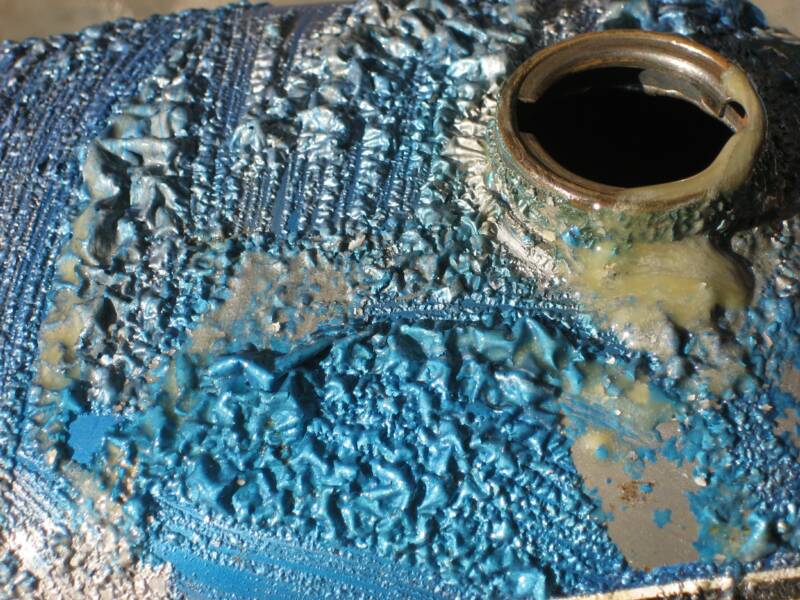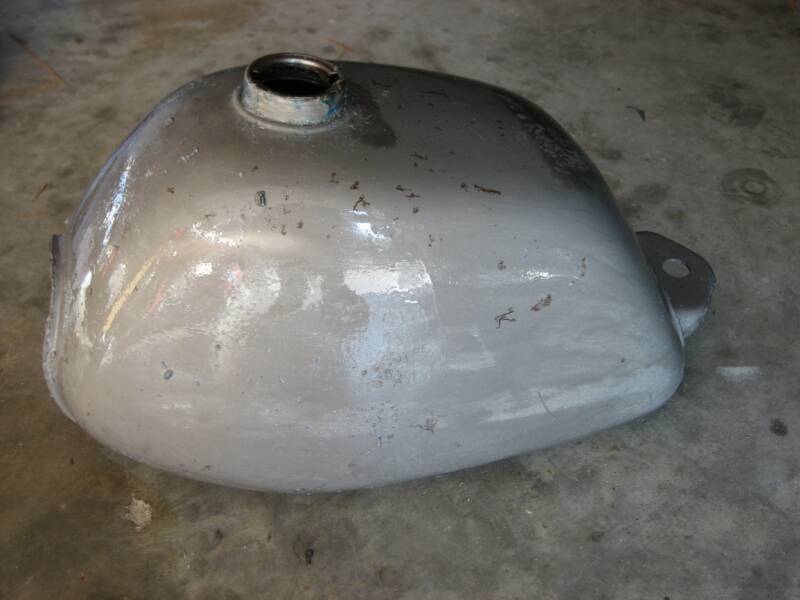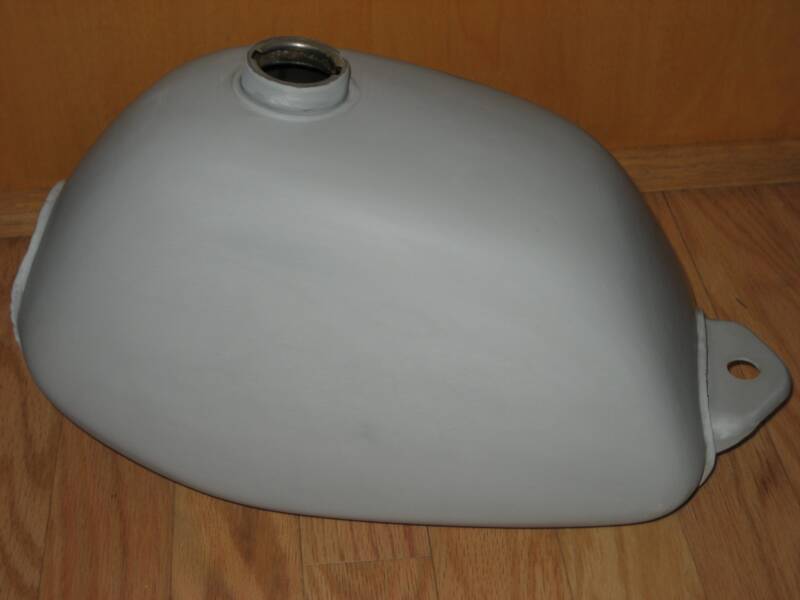Paint Removal and Refinish
Once you decide to restore the bike, you will have to decide what process you are going to use for painting.
If you decide to powder coat, you can find a local powder coating company that can color match your bike color. One of the few place to find the original color on old CT70 and CT90 bikes is under the rear shock lower mount. Most of these bikes still have original shocks on them, and that area never gets exposed to the elements.
All the powder coating companies will sand blast the parts before powder coating, and it is included in the price. The better powder coaters heat the parts in the oven before sandblasting to burn any oil, grease and unwanted stuff from the parts. The result is a finish that will not peel or rust from underneath.
If painting, check your local auto paint supplier for color matching the paint on your bike. We have had excellent luck with a local paint house matching colors.
Candy colors usually cannot be duplicated by powder coating to match the original colors
Painting a bike involves multiple steps, Primer, Base Coat, Color Coat, and Clear Coat. Plan on spending about $450/$500 in materials for a complete paint job.
Candy Colors are a bit more expensive.
Any paint job is as good as the surface prep. If the parts to be painted are not prepared properly, you will get a paint job that will not look good at all. Your local library should have some good books available on proper painting techniques.
We don't recommend using spray cans. You will get a spray can quality paint job. If you don't have the experience or the equipment, let someone else with experience do the paint work.
You can use Aircraft Remover, available at most auto parts stores.
The Z50 frame on the right was stripped using this product. Read and heed all precautions listed on the can. This product is very effective and can strip paint within minutes. You may have to use it twice in some hard to reach areas. Cleanup is with water.
Above pictures show the aircraft remover at work. Use a Natural Hair brush to spread a generous amount of gel on the surface. It starts to work right away. Use a scraper to remove the old paint. You may have to use the gel again on some stubborn areas. Use plain water to cleanup. The tank in the last shot on top, is shown primed and final wet sanded with 1500 wet/dry sandpaper.
Small nicks and dents can be filled with a good non shrinking body filler.
346-351-1404
